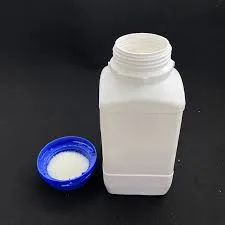The Importance of Water Treatment Chemicals in Well Water Management
Well water is a vital resource for many households and agricultural activities, particularly in rural areas where municipal water supplies may be unavailable. While well water can be a convenient and cost-effective option, it often requires treatment to ensure it is safe and palatable for consumption. This is where water treatment chemicals come into play. In this article, we will explore the various chemicals used in the treatment of well water, their applications, and the significance of maintaining water quality.
Understanding Well Water Contaminants
Before diving into the treatment process, it’s essential to understand what contaminants may be present in well water. Common issues include microbial contaminants, heavy metals, excess minerals, and organic compounds. Bacterial contamination from surface runoff or faulty septic systems can pose serious health risks. Meanwhile, minerals such as iron and manganese can result in undesirable tastes and staining of fixtures and laundry. Therefore, implementing a suitable treatment strategy is crucial.
Key Water Treatment Chemicals
1. Chlorination Agents One of the most widely used methods for disinfecting well water is chlorination. Chlorine, in either liquid or tablet form, is effective in killing bacteria, viruses, and other pathogens. The residual chlorine left in the water can also provide ongoing protection against future contamination. However, proper dosage is essential to avoid unpleasant tastes and odors.
2. Oxidizing Agents Iron and manganese can be effectively removed using oxidizing agents like potassium permanganate or hydrogen peroxide. These chemicals react with dissolved metals, causing them to precipitate out of the water, making them easier to filter out.
3. Coagulants Chemicals such as alum (aluminum sulfate) are used as coagulants to aggregate suspended solids in water. These solid particles can then be easily removed through sedimentation or filtration. This process is particularly useful for well water that may contain silt or organic matter.
well water treatment chemicals

4. pH Adjusters The pH level of well water significantly affects its quality and safety. Chemicals like sodium hydroxide or sulfuric acid can be used to adjust the pH levels, ensuring that the water is neither too acidic nor too alkaline. This balance is crucial not only for human consumption but also for protecting plumbing systems from corrosion or scaling.
5. Flocculants In cases of high turbidity, flocculants can be introduced to encourage the clumping together of suspended particles, making them easier to filter out. This is especially important in maintaining clear water quality.
The Benefits of Proper Well Water Treatment
Utilizing water treatment chemicals not only ensures the safety of the water for drinking and cooking but also improves its aesthetic qualities. Clear, odor-free water enhances the overall living environment. Furthermore, proper treatment prolongs the lifespan of plumbing equipment and reduces maintenance costs associated with hard water issues.
Regular Testing and Treatment
However, it’s crucial to recognize that water quality can change over time due to various factors such as seasonal variations, agricultural runoff, or changes in the aquifer. Regular testing of well water for contaminants is essential. Based on the results, appropriate treatment chemicals should be applied as needed to ensure compliance with health and safety standards.
Conclusion
In summary, water treatment chemicals play a vital role in managing well water quality. By effectively addressing contaminants, these chemicals not only safeguard human health but also improve the overall usability of water for various applications. Regular monitoring and effective treatment strategies are therefore essential for anyone reliant on well water. Investing in proper water treatment is an investment in health, comfort, and sustainable living. Ultimately, informed choices about water treatment chemicals can lead to a better quality of life for well water users.

